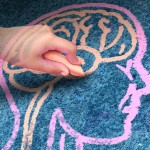
“Is that normal?” Living in the 21st Century
by Jim Aldrich
I enjoy cooking. High on my list of favorite things to prepare is liver and onions or spaghetti. Both are dishes that are made better with the use of onion in the recipe.
This brings me to admitting that I tolerate the onion, even with its checkered reputation. Despite its awkward shape, irritating fumes, and its difficulty in peeling when I include it in a recipe I know what I am looking for. A unique flavor, a recognizable scent, and that certain spiciness. Personally, my only issue with the onion is its texture. For whatever the reason the texture of the onion and me are at odds.
Because of the texture, I pick the onion out of my food. Hoping no one will notice. In a childlike fashion I will put any resemblance of an onion off to the side of my plate. If you were hosting a dinner party the onion and I wouldn’t make for the best of guests.
Odd Relations
Which brings me to the question at hand: Is my love/hate relationship with the onion normal? But what is normal these days? We seem to struggle with questions re many topics that no longer considered odd:
- Marriage between a man and woman or?
- Drugs, yes or no?
- Isolationism or internationalism?
- Feminism or a war on women?
- Gender roles?
- Traditional or secular values?
Pick one, any one and you will find people around you taking sides. “I’m right and you’re wrong.” Or “Things just aren’t meant to be this way.” Whichever side you come down on, with the advent of the 21st century living has taken on a different tone.
Conflict & Change
Historically, there have always been value based conflicts. Understand, conflict is not viewed here as bad. Rather, without conflict there would be no change. What is interesting is that the pattern for these conflicts to emerge is predictable. The world goes along seemingly in synch with itself for two or three decades. Then there is something that occurs that has us asking questions about the status quo. An event, a group or groups of people begin making demands, there is a change in the world order. From the simple to the complex conflict seems to arise out of change.
Let me provide a series of current examples from the 20th century. The Great Depression, World War II, the Cold War, Vietnam, and the beginnings of terrorism have each contributed to conflicts which then led to changes.
While the memory of these events remain a conscious influence on many lives for others there is little recollection. Yet, it is another event or change that happened quite recently and that is having the greatest impact on how we interact with our world today.
The Event
While some may argue that 9/11, the continuing threat of terrorism, or changes in the global economy are significant I would like to propose another event whose impact is more far reaching, significant, and it is still in its infancy. That event: the digital revolution.
Most of us are familiar with the development and evolution of the computer. There are very few (if any) who have not been influenced by the wonders of software and digital services.
There is not a single aspect of our lives today that has not in some measure been changed by the digital age. From the very simple task of leaving someone a message to waging war on a battlefield how we do things has changed.
How we communicate with each other – changed
Who are our friends – changed
How we stay informed – changed
Who we date – changed
Our connectedness with our economic and social life – changed
Medical treatment – changed
How we express ourselves – changed
Buying and reading a book – changed
We could go on and on and still be behind the digital age curve.
The Good, the Bad, & the Ugly
While the long arm of its influence touches every aspect of our world, I’d like to narrow our look at the digital revolution to a specific area that is a child of the 21st century: social networking. It is estimated that the world population in 2012 surpassed 7 billion people. By 2017 the number of people hooked into a social network will exceed 1.8 billion, or roughly 22%, that is more than one in five of everyone in the world.
Whether we like it or not the social network of today is well on its way to becoming the arbitrator of tomorrows social values. With their anonymity, lack of self-censorship and regulation, social network sites such as Facebook do influence our opinion forming and decision making.
The social network is an example of how the role of the digital age is a mixed bag. Many rely on it for support, information, or even deciding life or death issues. For others, it is a quick, convenient way to communicate. Then there are those few who use the digital age for less than noble reasons.
Our question remains valid: Who or what is the judge of what are the right or wrong ways to live in the 21st century?
Image: https://www.flickr.com/photos/69805768@N00/3292899689





